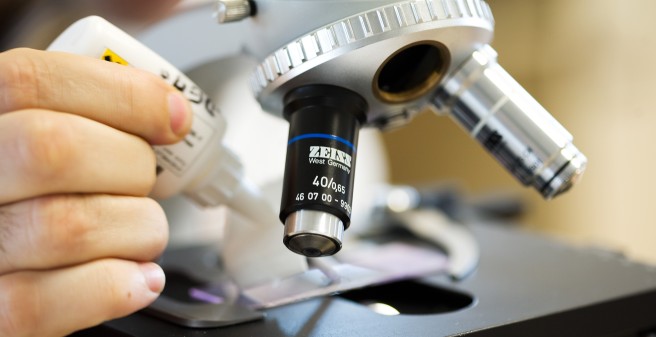Heisenberg Group
The Heisenberg Group was founded in 2012, after internationally recruiting highly specialized experts in bone and cell biology as group members. We are an international team that is scientifically and personally closely linked to multiple bone biology laboratories world wide. The research activities in our lab are funded among other grants by the Heisenberg excellence program of the German Research Foundation (Deutsche Forschungsgemeinschaft). We are the first group in the bone biology field receiving this prestigious grant.
Scientific interests
the human skeleton is constantly remodeled by the coordinated activities of bone producing osteoblasts and bone resorbing osteoclasts ( review article ).
A dysregulation of this finely concerted balance may result in loss of bone mass, ultimately leading to osteoporosis. Our scientific interests mainly focus on the analysis of the signal transduction pathways that regulate function and differentiation of bone producing osteoblasts and terminally differentiated osteocytes ( review article ).
Our research objectives are:
- Regulation of osteoblast and osteocyte function, differentiation, and gene expression by extracellular ligands
- Interactions of osteoblasts and osteocytes with other cell types in the bone marrow, e.g. endothelial cells or bone metastases
Experimental approaches
We combine various in vivo and in vitro methodological approaches to conduct our research. Transgenic mouse lines are particularly important for our research, since these mouse lines allow us to analyze the functions of single genes in osteoblasts and osteocytes. In addition to routine laboratory methods, we use the following experimental paradigms:
- In vivo mouse genetics, i.e. targeted modification of a single or multiple mouse genes by transgenic expression or deletion in either all somatic cells or in defined cell populations
- Histomorphometry, i.e. analysis of structural and functional parameters in specifically stained mouse bone sections
- Analysis of osteoblast and osteocyte differentiation, activity and gene expression by in vitro assays
- Recombinant approaches for generation of DNA constructs
